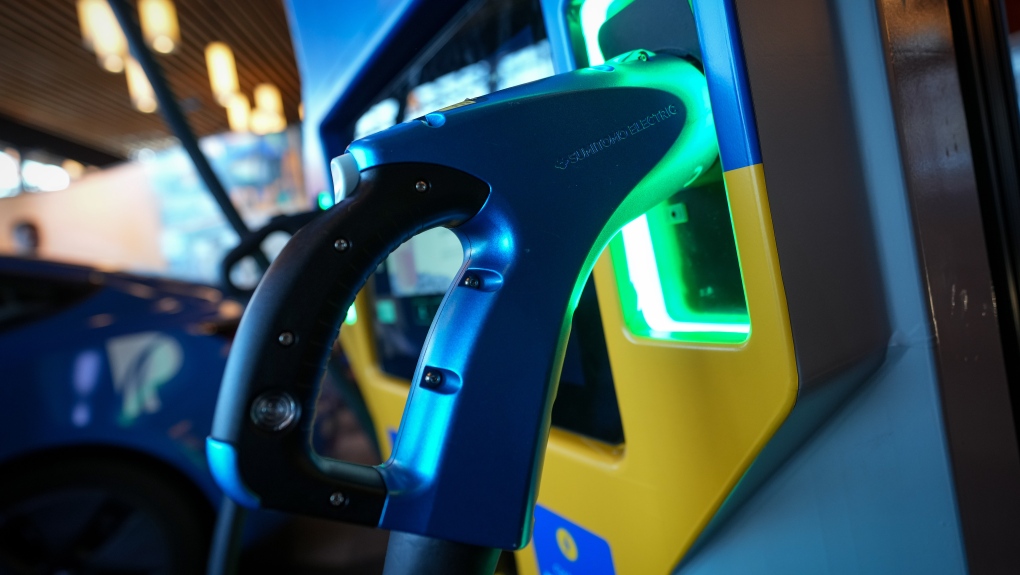Unless policies or technologies change, the ownership cost of electric vehicles (EVs) needs to decrease by 31 per cent if Canada to wants to reach its sales target of 60 per cent EVs by 2030, according to a new report released Thursday by Parliamentary Budget Officer Yves Giroux.
Last December, the federal government unveiled its Electric Vehicle Availability Standard that outlined zero-emission vehicle sales targets for automakers. The standard requires all new light-duty sales in Canada to be electric or plug-in hybrid by 2035. There are also interim targets of at least 20 per cent of all sales being EVs by 2026 and 60 per cent by 2030.
Those federal government targets come as growth forecasts for auto companies have plateaued and concerns about charging infrastructure persist. The price of EVs has also pushed the cars out of reach for many consumers. According to the Canadian Black Book, the average cost of an EV was $73,000 in 2023.
Sounds like Canada should put a 50% tax on gasoline powered vehicles.
So, I drive an EV already but here’s the rub with just taxing gas powered vehicles.
I still believe some people need (or should use) gas vehicles currently.
The first case is for people who have no access to a charger at their home (primarily condo dwellers, since home owners can easily install them) This should be regulated by the government, every condo should be required to upgrade their parking to include a certain percentage of chargers. We don’t need more chargers at random places around the city like we have with gas stations, vehicles should always be charged wherever they happen to sit overnight.
I’ve had an EV for 3 years now, and I’ve never once needed a fast charger, I’ve never driven more than 400km in a single day so overnight level 2 charging is perfectly fine for me, I even used only the standard wall-socket level 1 charger for 4 months when I first got the car. It was do-able but a bit annoying.
The second case is for long distance drivers and/or towing, if you drive more than 2x your battery range in a day as a normal action then EVs just aren’t yet sufficient for you. This is common if you need to tow heavy things, because the towing range on EVs is absolute shit so 2x that battery range isn’t very far. A ford f150 lightning is fine for hauling your trailer around the suburbs for your yard maintenance business, but if you tow farm equipment a few hundred kilometers a day to different farms, it’s not going to work with the current options.
Third, People who already have vehicles. When you replace it, go EV, don’t bother until then. If you are a low distance driver, when you go to replace your vehicle, buy a used gas vehicle not a new one. EVs make more sense both financially and environmentally the more use they get.
These issues are all getting sorted out (slowly) but we aren’t done with gas vehicles just yet so I’d rather see the taxes on the Gas than on the Vehicle itself.
As a condo owner with an EV, getting a charger installed was only marginally more difficult than if I was freehold. There are already laws in place that require condo boards to respond to charger installation requests and enter an agreement with the owner. I think getting more street parking chargers like they have all over Europe would be a good idea and installing charging bays in all new condo towers should be a requirement for the developer.
A big barrier to EV adoption is also education. I have been asked so many questions about my EV from my neighbours, friends, and families. The dealership wasn’t able to answer like 80% of my questions. I had to do a ton of learning online to understand the features of my car, how it works, how to charge it, when it operates well or poorly etc.




